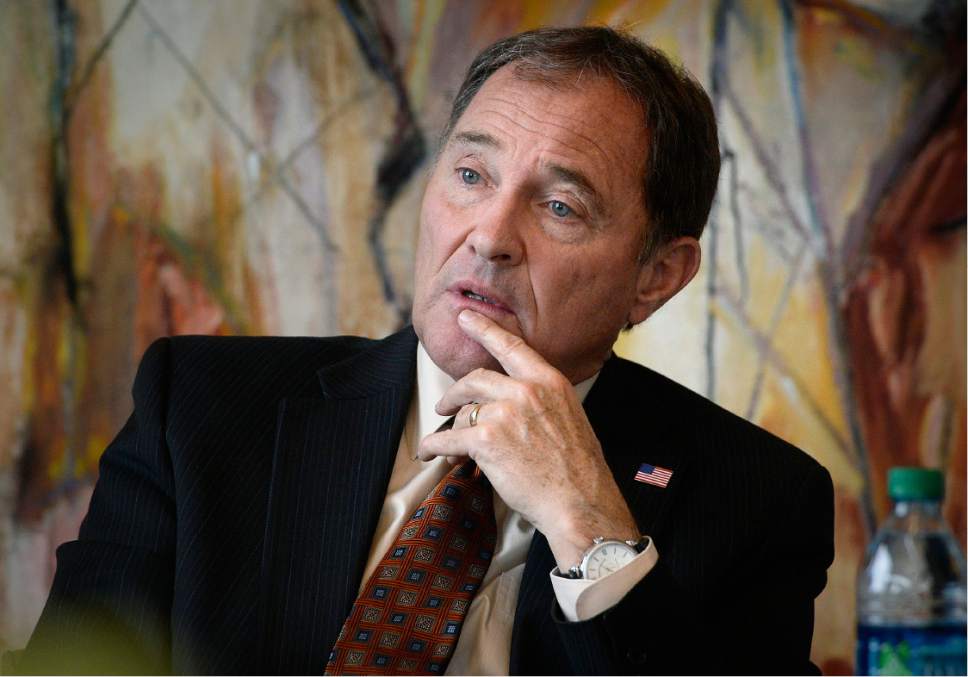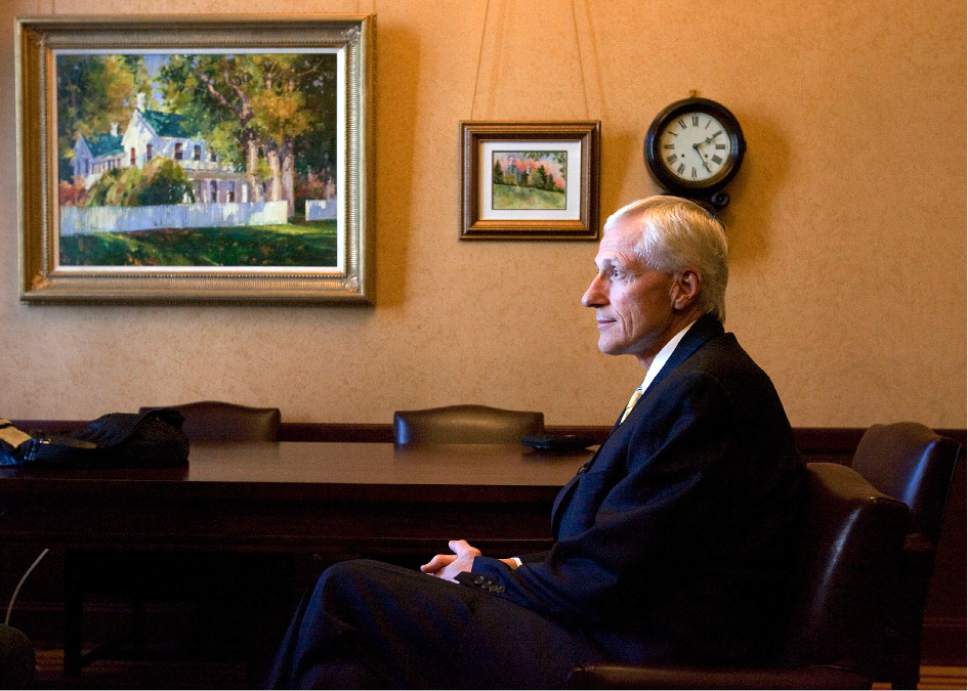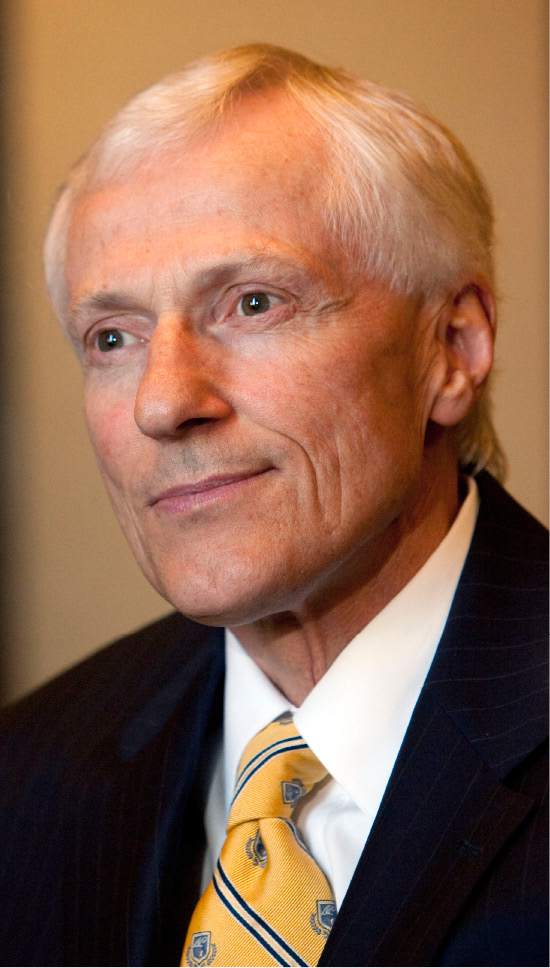This is an archived article that was published on sltrib.com in 2016, and information in the article may be outdated. It is provided only for personal research purposes and may not be reprinted.
Gov. Gary Herbert and his new appointee to the Utah Transit Authority Board — former Lt. Gov. Greg Bell — say the agency needs more transparency, and that Bell now will help push that agenda.
"There needs to be more, continued openness and transparency in all they do," Herbert told The Salt Lake Tribune Editorial Board last week.
In a separate interview, Bell echoed that sentiment.
"We want to have UTA in all its functions and operations cognizant that the public owns it, that they are our shareholders," Bell said.
"You've got to have open meetings. You just can't dodge that. You've got to be committed to it. ... I'm used to doing this. That's how I lived in public life, so it's not a stretch for me."
Before becoming lieutenant governor, Bell was in the state Senate. He started in public office as a Farmington councilman, later becoming mayor.
These endorsements of transparency come on the heels of revived controversy over secretive UTA Board committee meetings — and after Herbert this week named Bell to replace former UTA Chairman H. David Burton as the governor's one appointment on the 16-member board.
Burton, who stepped down as chairman to devote his attention to his recent post as chairman of the University of Utah board of trustees, was replaced as the UTA board's leader by labor lawyer Robert McKinley.
While Herbert praises Burton for many ethics reforms he pushed at UTA, Burton stirred controversy in May by proposing to close its committee meetings. He said state law would allow that because no votes would take place. He also said he wanted these meetings closed because he disliked Tribune coverage of them.
Herbert was among those who balked at the move. Critics said Utah law requires such meetings to be open regardless whether votes are taken, and pointed out that such sessions are where most issues are discussed in detail — so the public should be welcome.
Amid pressure, Burton reversed course and said the meetings would be open.
However, in the four months since then, only meetings of its executive committee have been held publicly. Last week, board member Charles Henderson said all but one member of a committee he had led held a conference call to discuss UTA goals. No agenda had been posted.
Henderson said UTA committees had been disbanded, so the informal discussion didn't violate the vow for openness.
He revised his story in a subsequent meeting with the Salt Lake County Council after some members had threatened to block UTA funding over lack of transparency. Henderson said he misspoke, and only three board members were on the conference call — not a quorum of any committee.
UTA officials also told the County Council that the agency's committee meetings have been suspended while they review how to restructure them, and again promised openness.
Herbert said UTA's public trust and credibility have suffered in recent years.
"Some things have happened, which I think were unfortunate. Some issues that I think [where] some members of the board were probably [getting] insider information, probably enriching themselves," Herbert said. "That caused distrust."
He added that longtime controversy over high executive salaries and extensive travel also hurt the agency. "All those combine to create an atmosphere where people said, 'I don't know if I like what they're doing and that they're spending the money wisely.' "
UTA adopted many worthwhile reforms under Burton to handle such concerns, the governor noted. "It's turned around, but I think it still has a way to improve." He said that includes, "All the meetings ought to be open and transparent."
Bell said, "UTA has just gotten black eyes because of the transparency issue."
Openness and accountability are essential to public trust, he said.
"Since I was on the [Farmington] City Council in 1990, we've had open meetings," he said. "The public's money is the public's business, so that's where we've got to go."
Bell said he agreed to serve on the UTA Board and replace Burton because he has been a strong supporter of transit since he was Farmington's mayor, adding that it is vital to solving air pollution and congestion problems.
"This is a great public resource," he said. "When you talk about addressing clean air, transit is a huge part of the answer."
He noted UTA and others figure that transit removes the equivalent of one lane's worth of traffic off of area freeways. Improving service can do even more.
"That's a big deal," Bell said. "This system is the people's and we've got to make it accessible and we've got to make UTA realize in everything we do, that our shareholders are the public. It's not 'us' and 'them.' It's 'we.' "







